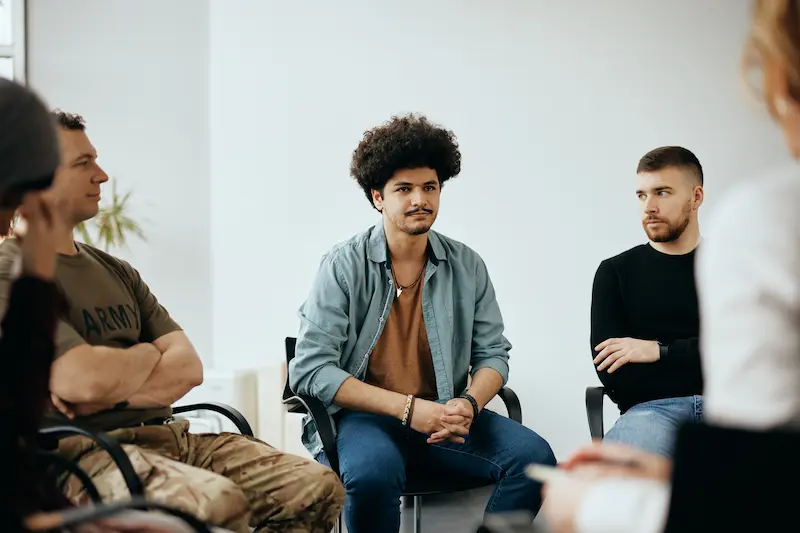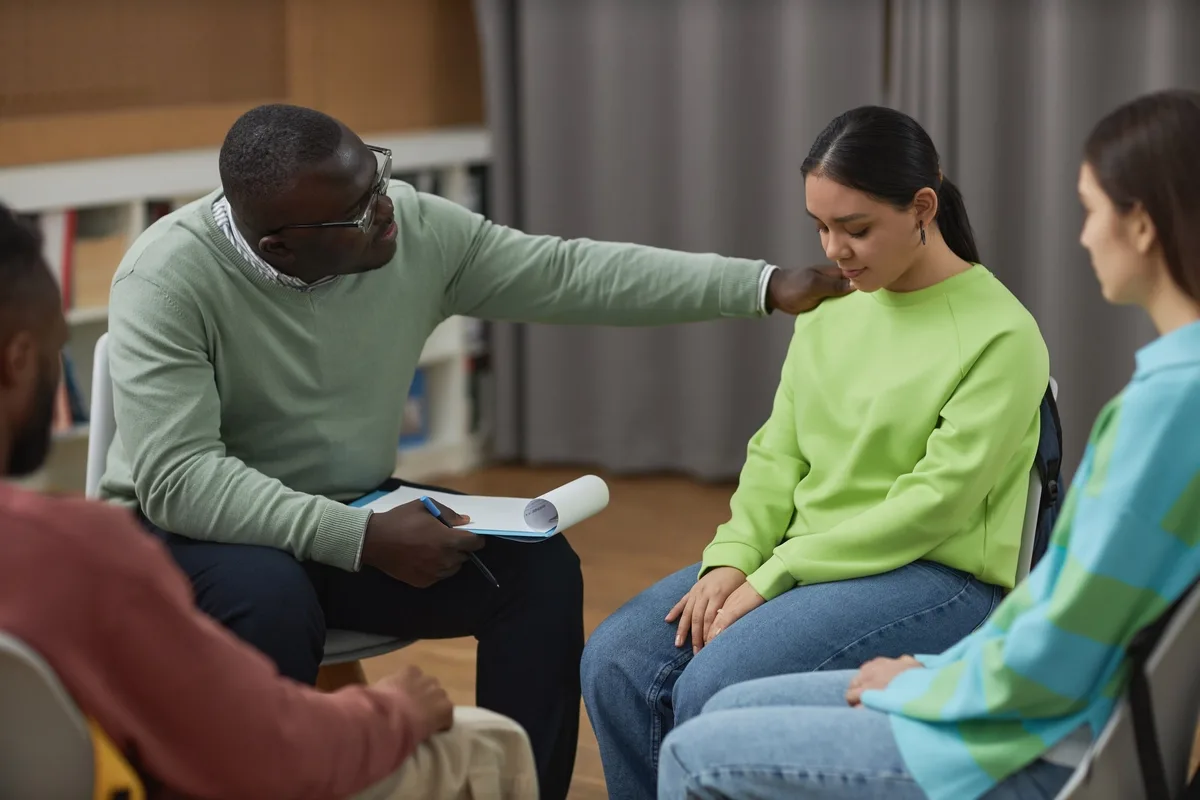24/7 Helpline:
(866) 899-111424/7 Helpline:
(866) 899-1114
Learn more about Group Therapy centers in Murphy
Group Therapy in Other Cities

Other Insurance Options

Sutter

Magellan Health

Health Choice

Meritain

Optum

Health Partners

GEHA

Providence

Aetna

PHCS Network

Optima

Amerigroup

Sliding scale payment assistance

CareFirst

Lucent

Access to Recovery (ATR) Voucher

ComPsych

Health Net

Ceridian

Kaiser Permanente










